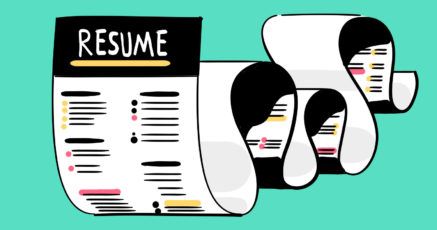Our Blog
How Long Should Your Resume Be?

Your resume is often times your ticket to securing interviews and ultimately landing your dream job. But one burning question often plagues job seekers: how long should your resume be? With varying opinions and conflicting advice, finding the right answer can feel like navigating a maze.
Understanding Resume Length
Before we delve into specifics, let’s address the elephant in the room: there’s no one-size-fits-all answer to the question of resume length. The ideal length depends on a myriad of factors, including your level of experience, industry norms, and the expectations of hiring managers. Let’s break it down:
- Entry-Level Candidates: Fresh out of college or with minimal work experience, entry-level candidates should aim for a concise, one-page resume. Focus on highlighting relevant coursework, internships, volunteer work, and transferable skills.
- Mid-Career Professionals: As you gain more experience and accomplishments, a two-page resume becomes appropriate. Mid-career professionals can delve into more detail about their work history, achievements, and specialized skills, but remember to keep it relevant and focused.
- Senior-Level Executives: For senior-level executives with extensive experience, a longer resume spanning three or more pages may be necessary. However, even at this level, brevity is key. Focus on showcasing your most impressive achievements and the highlights of your career trajectory.
- Industry and Job Requirements: Consider the norms and expectations of your industry and the specific job you’re applying for. Some fields or companies may prefer shorter, more focused resumes, while others may expect a more detailed overview of your qualifications.
The Case for Conciseness
While it can be tempting to include every detail of your professional journey, remember that hiring managers often sift through a mountain of resumes. In this sea of information, brevity is your ally. Here’s why a concise resume reigns supreme:
- Attention Span of Hiring Managers: Hiring managers typically spend mere seconds scanning each resume. A concise, well-organized document increases the likelihood of capturing their attention and making a positive impression.
- Clarity and Readability: A cluttered, lengthy resume can overwhelm readers and obscure your key qualifications. By distilling your experience into concise bullet points and clear sections, you ensure that your achievements shine through.
- Relevance to the Job: Employers are primarily interested in how your skills and experiences align with the requirements of the job at hand. A concise resume allows you to tailor your content to highlight the most relevant qualifications, increasing your chances of landing an interview.
Tips for Crafting the Perfect Resume
Now that we’ve established the importance of conciseness, let’s explore some practical tips for crafting a winning resume:
- Prioritize Information: Start by identifying the most relevant experiences, skills, and achievements that align with the job you’re applying for. Lead with your strengths and accomplishments to grab the reader’s attention from the get-go.
- Use a Clean, Readable Format: Opt for a clean, professional layout that enhances readability. Use clear headings, bullet points, and ample white space to guide the reader’s eye and make your resume easy to navigate.
- Quantify Achievements: Wherever possible, quantify your achievements with numbers, percentages, or dollar figures. This not only adds credibility to your accomplishments but also provides concrete evidence of your impact.
- Tailor Your Resume: Customize your resume for each job application by emphasizing the most relevant experiences and skills. This demonstrates your genuine interest in the position and increases the likelihood of resonating with the hiring manager.
- Edit Ruthlessly: Once you’ve drafted your resume, edit ruthlessly to eliminate any unnecessary information or filler content. Every word should serve a purpose and contribute to painting a compelling picture of your qualifications.
Conclusion
In the age-old debate of resume length, there’s no definitive answer. Instead, the key lies in finding the right balance between conciseness and comprehensiveness. Whether you’re an entry-level candidate or a seasoned executive, the goal remains the same: to showcase your qualifications in a clear, compelling manner. By understanding the nuances of resume length and following these practical tips, you’ll be well-equipped to craft a resume that stands out from the competition and paves the way for your professional success.
How Long Should Your Resume Be?
Unveiling Bias: The Risks of AI in Recruiting
Key Questions to Ask When Interviewing for a Job
Gen Z Dynamics in the Workplace: Strategies for Engaging Younger Talent
Building Bridges: The Benefits of Getting Acquainted with Co-workers
Understanding and Managing Interview Anxiety
With great vision, you need great people
Looking for higher-level career opportunities in Greater Boston and throughout Massachusetts?
